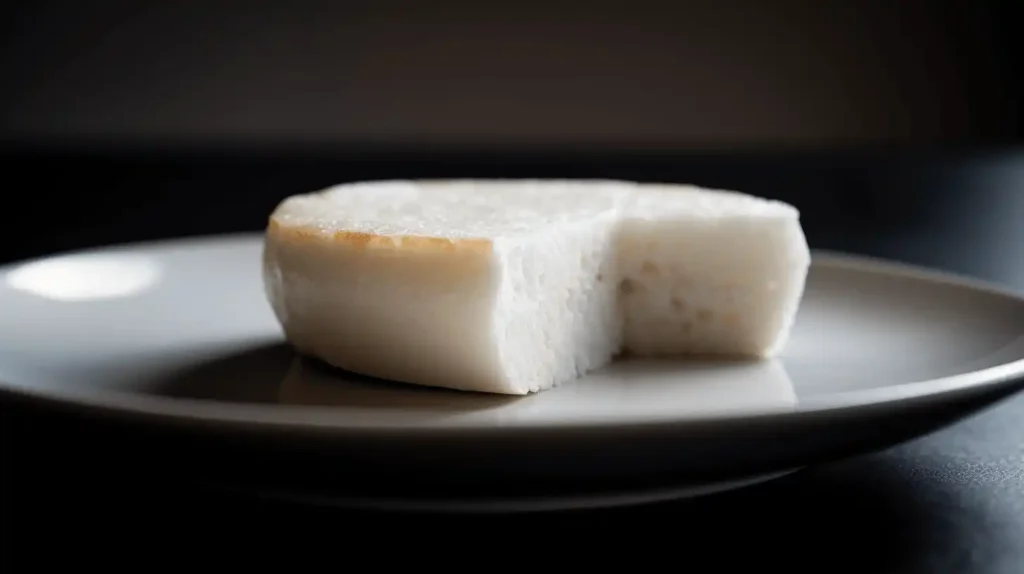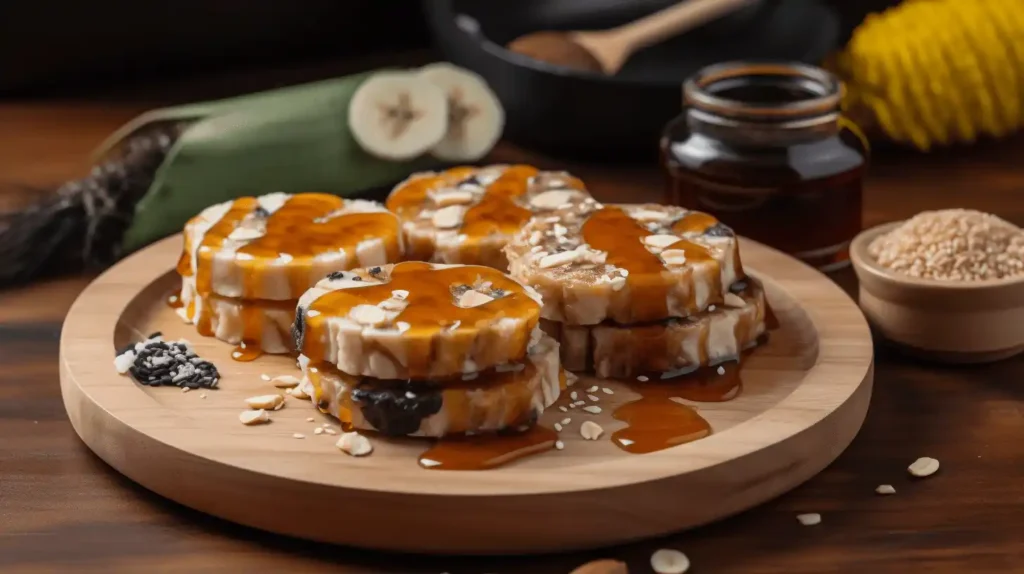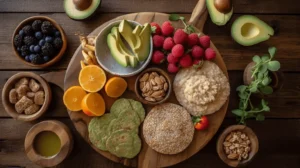Rice cakes have long been hailed as a go-to snack for the health-conscious, but not everyone agrees. Some argue they’re little more than empty calories, while others swear by their versatility and low-calorie appeal. So, are rice cakes junk food? This article dives deep into the debate, exploring the nutritional profile of rice cakes, their pros and cons, and whether they truly belong in your pantry. By the end, you’ll have a clear understanding of where rice cakes stand in the world of healthy eating.
Table of Contents
What Are Rice Cakes, Really?
Understanding Rice Cakes: Origins and Production
Rice cakes are exactly what they sound like—puffed rice snacks formed into round, thin cakes. They’re made by applying heat and pressure to rice grains, causing them to expand and stick together. This process gives rice cakes their characteristic light and airy texture. Originally a staple in Asian diets, they’ve now become a global favorite for their convenience and adaptability.
There’s a surprising variety of rice cakes available. Some are made from white rice, while others use whole grain brown rice, adding extra nutrients and fiber. They can be plain, salted, or flavored with everything from caramel to cheddar. Whether you’re snacking on them as-is or using them as a base for toppings, rice cakes are about as versatile as a snack can get.
The Nutritional Makeup of Plain Rice Cakes
Let’s get real about nutrition. A standard rice cake (plain and unsalted) usually contains around 35 calories, less than 1 gram of fat, and 7 grams of carbohydrates. Sounds pretty harmless, right? But here’s the catch—they’re often low in fiber, protein, and other essential nutrients. While they won’t break the calorie bank, they also don’t bring much to the table in terms of sustained energy.
That said, rice cakes made with whole grain rice can offer more nutritional bang for your buck. Whole grains contain more fiber and micronutrients, making them a better choice for those seeking a healthier snack option. Still, relying solely on rice cakes for nutrition might leave you feeling unsatisfied and reaching for more food soon after.
The Debate: Are Rice Cakes Junk Food?
What Defines Junk Food?
When we think of junk food, certain features come to mind—high in calories, low in nutrients, and full of fake ingredients. Are rice cakes junk food? It depends on how you see it. Plain rice cakes are low in calories, but they often don’t have enough important nutrients like fiber, protein, or vitamins. This can make them less filling and might lead to overeating, which is common with junk food.
On the other hand, rice cakes don’t usually have too much sugar, salt, or bad fats, which makes them better than most junk foods. Still, flavored rice cakes can be closer to junk food if they’re packed with added sugars and chemicals.
Why Some People Call Rice Cakes Unhealthy
Some people say rice cakes are not healthy because they have a high glycemic index (GI). Foods with a high GI can quickly raise and lower blood sugar, causing energy drops and making you feel hungry soon after eating. This can make rice cakes less ideal for people managing diabetes or blood sugar issues.
Still, not all rice cakes are the same. Those made with whole grain rice or paired with protein-rich toppings can be a better snack option. While rice cakes don’t provide a lot of nutrients on their own, they aren’t “junk food” unless they are heavily processed or covered in sugary coatings.
Health Benefits of Rice Cakes
Low-Calorie Snacking Made Simple
Rice cakes shine as a low-calorie snack. With just 35-50 calories per piece, they’re an easy way to curb cravings without going overboard. This makes them a popular choice for those looking to lose or maintain weight. Their light texture is perfect for those who prefer snacks that don’t feel heavy.
But here’s the catch—low calories don’t always mean high nutrition. To make the most of rice cakes, pair them with toppings like hummus, nut butter, or avocado, which add both flavor and essential nutrients.
Adaptable to Different Dietary Needs
One of the biggest perks of rice cakes is their versatility. They’re naturally gluten-free, making them a safe choice for those with celiac disease or gluten sensitivities. Plus, they can easily fit into vegan, low-fat, or even low-sodium diets, depending on the variety you choose.
For instance, topping rice cakes with fresh vegetables or lean proteins can turn them into a balanced mini-meal. Whether you’re vegan, gluten-free, or simply looking for a quick snack, rice cakes adapt to your needs with ease.
Rice cakes are naturally gluten-free, making them an excellent choice for individuals with celiac disease or gluten sensitivities. For more ideas on maintaining a gluten-free diet, check out our guide on 10 Delicious Gluten-Free Lunch Ideas for a Healthy Lifestyle
Challenges and Drawbacks of Rice Cakes
The Problem with High Glycemic Index Foods
Rice cakes raise blood sugar levels rapidly because of their high glycemic index (GI). This quick spike can create problems for people managing diabetes or aiming to keep their energy levels stable. Critics often highlight that high GI foods deliver a brief energy burst followed by a crash, leaving you hungry again shortly after.
Although this characteristic doesn’t automatically label rice cakes as “junk food,” it does make them more suitable when paired with foods that slow digestion. Adding hummus, nut butter, or avocado to rice cakes balances their effects on blood sugar, making them a more wholesome option.

Do They Lack Essential Nutrients?
Another common complaint about rice cakes is that they don’t have enough important nutrients. They are low in protein, fiber, and vitamins, which are important for feeling full and staying healthy. While rice cakes are good for low-calorie snacks, eating them alone won’t give your body the nutrients it needs for lasting energy or satisfaction.
For example, replacing a well-rounded snack with plain rice cakes might leave you feeling hungry and looking for more food soon after. To make rice cakes a better option, try adding healthy toppings like Greek yogurt, fresh fruit, or nuts.
Enhancing Rice Cakes for Better Nutrition
Topping Ideas to Boost Nutrition
The good news is that rice cakes are like a blank canvas, ready for creative and nutritious toppings. By adding a layer of peanut butter and sliced bananas, or hummus with fresh cucumber, you can turn a basic snack into a nutrient-packed mini-meal. These toppings add fiber, protein, and healthy fats, making rice cakes a more satisfying choice.

Other ideas include:
- Avocado and cherry tomatoes: A savory option packed with healthy fats and antioxidants.
- Almond butter and chia seeds: Perfect for a sweet and crunchy treat.
- Smoked salmon and cream cheese: A protein-rich choice for a filling snack.
Picking the Right Variants
Not all rice cakes are created equal. When shopping, look for options made from whole grain brown rice, as they have more fiber and nutrients than those made with refined white rice. Additionally, avoid flavored varieties that often contain added sugars, salt, or artificial ingredients.
Organic rice cakes can be a great choice if you’re concerned about pesticide residues or additives. Remember, the fewer ingredients listed on the package, the better the product is likely to be for your health.
Common Misunderstandings About Rice Cakes
Are All Rice Cakes Equal in Health Value?
One common misconception is that all rice cakes are created equal. While they may look similar, the nutritional content of rice cakes can vary significantly depending on the type of rice used and any added ingredients. For example, plain rice cakes made from whole grain brown rice offer more fiber and nutrients than those made from refined white rice.
Flavored varieties, on the other hand, often contain added sugars, salt, or artificial ingredients. This raises an important question: Are rice cakes junk food? The answer depends on your choice. Selecting plain or minimally processed options can make rice cakes a healthier addition to your diet.
Can They Really Help with Weight Loss?
Another misunderstanding is that rice cakes are a guaranteed weight-loss food. While they’re low in calories, they’re also low in protein and fiber, which are essential for feeling full. Eating rice cakes alone might not satisfy your hunger, leading to overeating later.
To use rice cakes effectively in a weight-loss plan, pair them with nutrient-rich toppings like nut butter or avocado. These additions can provide the balance your body needs to stay energized and satisfied. When combined with a healthy diet and portion control, rice cakes can play a supporting role in weight management.
FAQs About Rice Cakes
Are Rice Cakes Bad for Your Health?
Not really. Rice cakes are low in calories and fat, which makes them a popular snack for people trying to manage their weight. But how healthy they are depends on how they’re made and eaten. Plain rice cakes made with whole grain rice are better than flavored ones that have added sugar or fake ingredients. So, are rice cakes junk food? They don’t exactly count as junk food, but they don’t have enough nutrients to be a completely balanced snack.
Do Rice Cakes Provide Long-Lasting Energy?
Rice cakes are a quick source of energy due to their carbohydrates, but this energy doesn’t last long. Their high glycemic index can cause blood sugar to rise quickly and then drop, leading to energy crashes. Pairing rice cakes with protein-rich or healthy fat toppings, like peanut butter or avocado, can help provide longer-lasting energy.
How Do Flavored Rice Cakes Compare to Plain Ones?
Flavored rice cakes can be tempting, but they often contain added sugars, salt, or artificial ingredients. While plain rice cakes may seem bland, they’re a much healthier option and can be enhanced with nutrient-rich toppings. If you’re wondering, are rice cakes junk food, flavored versions can sometimes cross that line due to their added ingredients.
Can Rice Cakes Replace Bread in a Diet?
Yes, rice cakes can be a good substitute for bread, especially for those who are gluten-intolerant. However, they lack the fiber and protein that many whole grain breads offer. If you use rice cakes as a bread replacement, consider adding toppings like hummus, sliced turkey, or cheese to create a more balanced and filling meal.
Are Rice Cakes Unhealthy?
Rice cakes aren’t inherently unhealthy, but their nutritional value can vary depending on the type and how they’re consumed. Plain rice cakes made from whole grain brown rice are a low-calorie snack with minimal fat and additives, making them a healthy option when paired with nutrient-rich toppings. However, their high glycemic index and low protein and fiber content can cause blood sugar spikes and leave you feeling hungry. Flavored varieties with added sugars and artificial ingredients may lean toward being less healthy.
Is Rice Considered Junk Food?
No, rice isn’t junk food. Many cultures rely on it as a staple, and it provides essential carbohydrates as a primary energy source. However, processing rice into certain snacks—like overly sweetened or flavored rice cakes—can give it junk food characteristics, such as low nutrient density or high sugar content. Choosing minimally processed rice products preserves their nutritional benefits and makes them a healthier option.
Are Rice Cakes Highly Processed Food?
Rice cakes qualify as processed food because manufacturers heat and compress rice grains to create their distinctive shape. However, plain rice cakes with minimal ingredients—such as rice and salt—undergo less processing compared to flavored versions packed with artificial additives, sweeteners, or preservatives. Choosing whole grain options boosts their nutritional value and makes them a healthier choice.
Why Do Gym People Eat Rice Cakes?
Rice cakes are popular among gym-goers because they provide a quick, easily digestible source of carbohydrates. They are often eaten pre- or post-workout to replenish energy stores without feeling too heavy. Pairing rice cakes with protein-rich foods, like peanut butter or a boiled egg, creates a balanced snack that supports muscle recovery and sustained energy. Their low-calorie content also makes them ideal for those managing calorie intake while staying active.
Conclusion:
The question Are rice cakes junk food? may seem similar to topics in other articles, but the FAQs in this piece cover unique aspects. They focus on plain and flavored rice cakes, examining their health value, variations, and common misconceptions. On the other hand, the previous article looks specifically at chocolate rice cakes, exploring their nutritional profile, recipes, and uses. By addressing different angles and details, these articles avoid repeating the same information and offer readers a broader understanding of rice cakes in various contexts.

